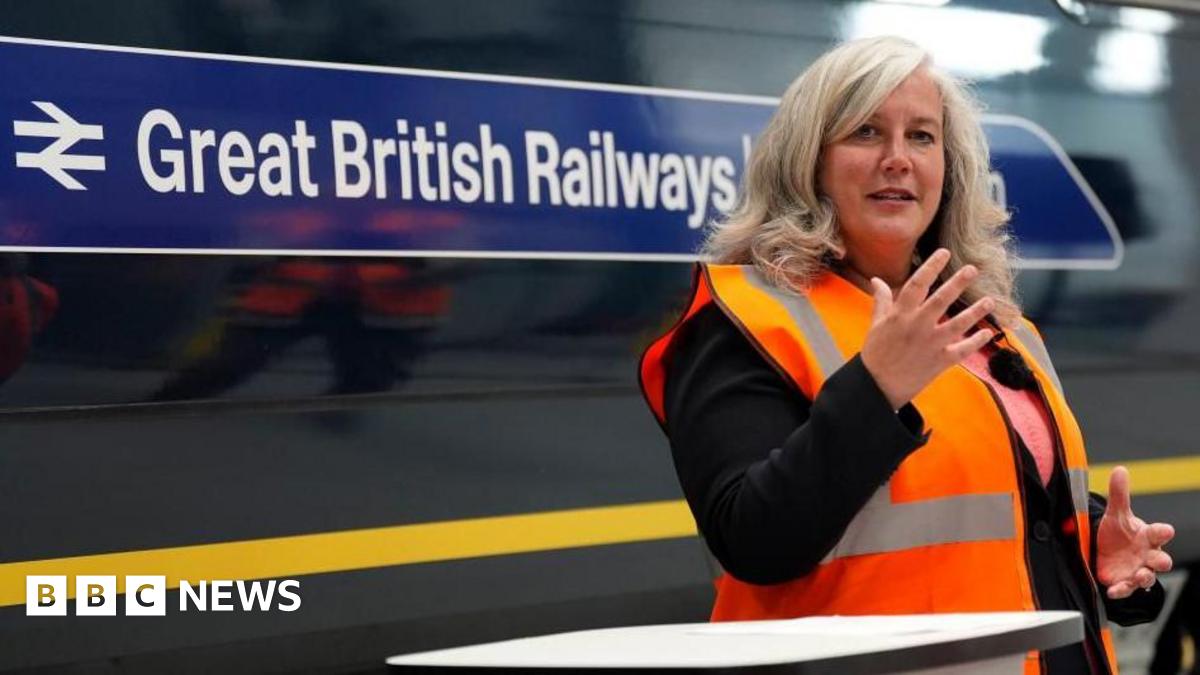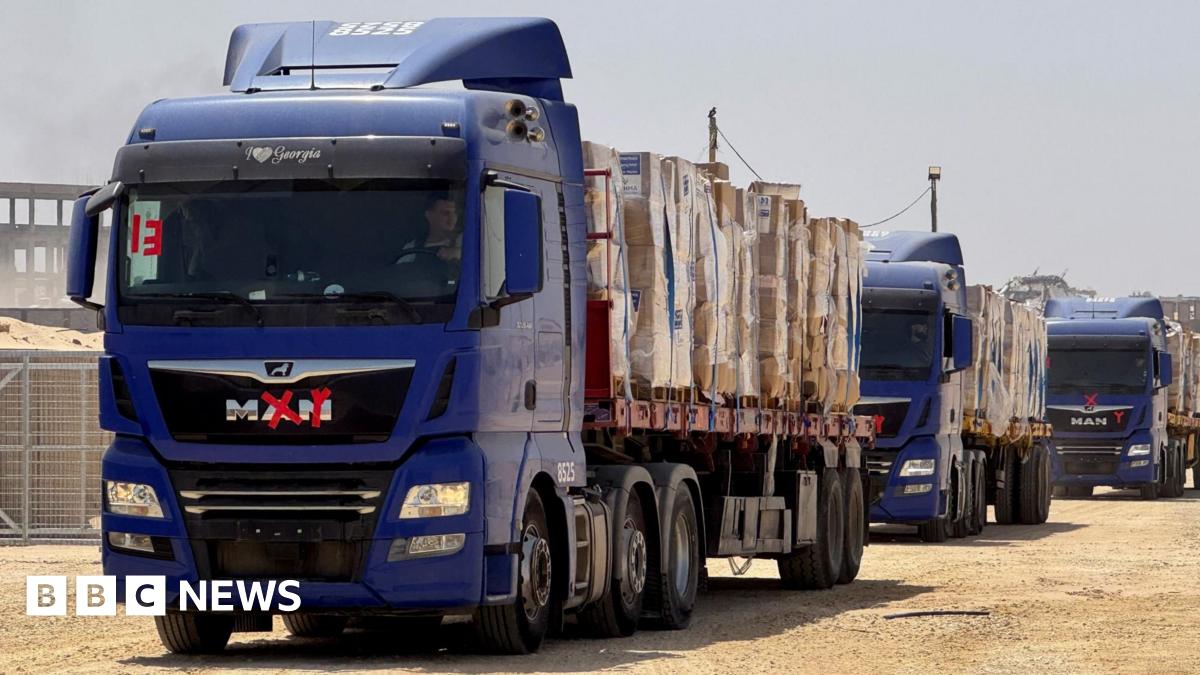South Western Railway Renationalisation: A Labour Party Milestone

Welcome to your ultimate source for breaking news, trending updates, and in-depth stories from around the world. Whether it's politics, technology, entertainment, sports, or lifestyle, we bring you real-time updates that keep you informed and ahead of the curve.
Our team works tirelessly to ensure you never miss a moment. From the latest developments in global events to the most talked-about topics on social media, our news platform is designed to deliver accurate and timely information, all in one place.
Stay in the know and join thousands of readers who trust us for reliable, up-to-date content. Explore our expertly curated articles and dive deeper into the stories that matter to you. Visit Best Website now and be part of the conversation. Don't miss out on the headlines that shape our world!
Table of Contents
South Western Railway Renationalisation: A Labour Party Milestone?
The potential renationalisation of South Western Railway (SWR) is a significant talking point in the UK, marking a potential milestone for the Labour Party and raising crucial questions about the future of rail privatisation. While not yet a concrete reality, the ongoing discussions and potential implications warrant close examination. This article delves into the arguments for and against renationalisation, exploring the political landscape and the potential impact on commuters and the wider economy.
The Labour Party's Stance on Rail Nationalisation:
The Labour Party has long been a vocal advocate for bringing railways back under public control. Their manifesto often highlights the perceived failures of privatisation, pointing to issues such as rising fares, overcrowded trains, and a lack of investment in infrastructure. For Labour, renationalising SWR would serve as a powerful symbol of their commitment to public services and a potential springboard for wider rail nationalisation across the UK. This move aligns with their broader strategy of increasing state intervention in key sectors.
Arguments in Favour of SWR Renationalisation:
Proponents argue that renationalisation offers several key advantages:
- Improved Service Quality: Public ownership, they contend, could lead to improved service quality, with a greater focus on passenger needs rather than profit maximisation. This could translate into more frequent services, better maintenance, and improved punctuality.
- Increased Investment: A publicly-owned SWR might see increased investment in infrastructure upgrades, new rolling stock, and improved accessibility, benefiting both commuters and the wider region.
- Fairer Fares: Advocates suggest that renationalisation could lead to fairer and more affordable fares, reducing the burden on passengers.
- Greater Accountability: A publicly-owned railway would be directly accountable to the government and, ultimately, the public, making it easier to address concerns and push for improvements.
Counterarguments and Challenges:
However, the path to renationalisation is not without its challenges. Critics raise concerns about:
- Financial Burden: The cost of buying out SWR and managing a publicly-owned railway could place a significant burden on taxpayers. The potential financial implications require careful scrutiny and transparent cost-benefit analysis.
- Bureaucracy and Inefficiency: Some argue that public ownership can lead to bureaucracy and inefficiency, potentially hindering innovation and flexibility. Comparisons with other nationalised industries are often cited, highlighting both successes and failures.
- Political Interference: Concerns exist about potential political interference in the day-to-day operations of a nationalised SWR, potentially impacting efficiency and decision-making.
The Wider Context of Rail Privatisation in the UK:
The debate surrounding SWR's renationalisation sits within the broader context of the UK's rail privatisation model. This model has faced persistent criticism for its perceived shortcomings, and the ongoing discussion reflects a growing public dissatisfaction with the current system. The success or failure of SWR renationalisation will likely have significant implications for the future direction of rail policy in the UK.
What Happens Next? The Road Ahead:
The future of SWR remains uncertain. The Labour Party's commitment to renationalisation is clear, but the practicalities and political challenges are substantial. Further discussions, negotiations, and potentially legislative changes will be required before any concrete steps are taken. This is a developing story, and further updates will be provided as they emerge. Stay informed by following reputable news sources and engaging in constructive discussions about the future of our railway system.
Call to Action: What are your thoughts on the potential renationalisation of South Western Railway? Share your opinions in the comments below.

Thank you for visiting our website, your trusted source for the latest updates and in-depth coverage on South Western Railway Renationalisation: A Labour Party Milestone. We're committed to keeping you informed with timely and accurate information to meet your curiosity and needs.
If you have any questions, suggestions, or feedback, we'd love to hear from you. Your insights are valuable to us and help us improve to serve you better. Feel free to reach out through our contact page.
Don't forget to bookmark our website and check back regularly for the latest headlines and trending topics. See you next time, and thank you for being part of our growing community!
Featured Posts
-
 Understanding Social Securitys June 2025 Payments And Adjustments
May 27, 2025
Understanding Social Securitys June 2025 Payments And Adjustments
May 27, 2025 -
 Seaside Heights Violence Investigation Launched After Multiple Stabbings And Fights
May 27, 2025
Seaside Heights Violence Investigation Launched After Multiple Stabbings And Fights
May 27, 2025 -
 Deadly Russian Air Strikes Hit Kyiv Despite Large Scale Prisoner Exchange
May 27, 2025
Deadly Russian Air Strikes Hit Kyiv Despite Large Scale Prisoner Exchange
May 27, 2025 -
 Sirius Xm A Millionaire Maker Stock Analyzing The Investment
May 27, 2025
Sirius Xm A Millionaire Maker Stock Analyzing The Investment
May 27, 2025 -
 Global Warming Could A Flesh Eating Fungus Be The Next Pandemic
May 27, 2025
Global Warming Could A Flesh Eating Fungus Be The Next Pandemic
May 27, 2025
Latest Posts
-
 Analysis Macrons Dismissal Of Viral Video Featuring Wife Brigitte Macron
May 28, 2025
Analysis Macrons Dismissal Of Viral Video Featuring Wife Brigitte Macron
May 28, 2025 -
 Relief Efforts Begin In Gaza A New Us Backed Group Takes Action
May 28, 2025
Relief Efforts Begin In Gaza A New Us Backed Group Takes Action
May 28, 2025 -
 Details Emerge The Liverpool Fc Parade Incident Explained
May 28, 2025
Details Emerge The Liverpool Fc Parade Incident Explained
May 28, 2025 -
 Controversial Abortion Arrest Leaked Audio Highlights Police Reservations
May 28, 2025
Controversial Abortion Arrest Leaked Audio Highlights Police Reservations
May 28, 2025 -
 Abortion Arrest Police Internal Recording Raises Serious Questions
May 28, 2025
Abortion Arrest Police Internal Recording Raises Serious Questions
May 28, 2025
